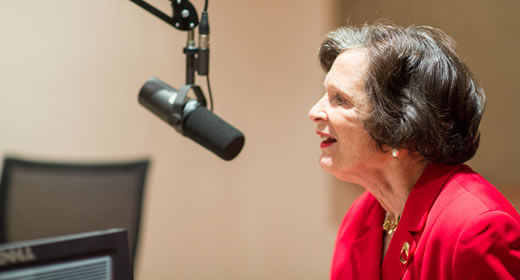
Cynthia Canty, host of Michigan Radio’s "Stateside," interviewed Marina v. N. Whitman about trade liberalization for the November 7 segment, “Nixon advisor: Regardless of next president, ‘hard to be optimistic’ about economic future.”
Like many economists, Whitman believes trade liberalization benefits a country overall, although she recognizes that there are winners and losers. Trade deals face opposition, she says, because “it’s much more personal and intense” for the smaller number of losers. "The people who gain may not even know that they’re gaining from trade liberalizations.” Trade deals are also blamed for job loss when other factors, such as automation and a transition to a service economy, may be the primary causes.
Whitman worries that regardless of the presidential election results, anti-trade sentiment and political gridlock will hurt the United States' rate of growth. “It’s very hard to be optimistic about what will happen,” says Whitman. Nevertheless, she hopes that the government will be able to enact some policies to support trade liberalization. For Whitman, this includes enforcing current trade agreements, passing the Trans-Pacific Partnership (TPP), and providing partial wage insurance to help those who have lost jobs due to the 21st century economy.
Marina v.N. Whitman is a professor of business administration and public policy at the University of Michigan. She served as a member of President Nixon's Council of Economic Advisers from 1972-73 and as vice president and chief economist of General Motors Corporation from 1979-92.